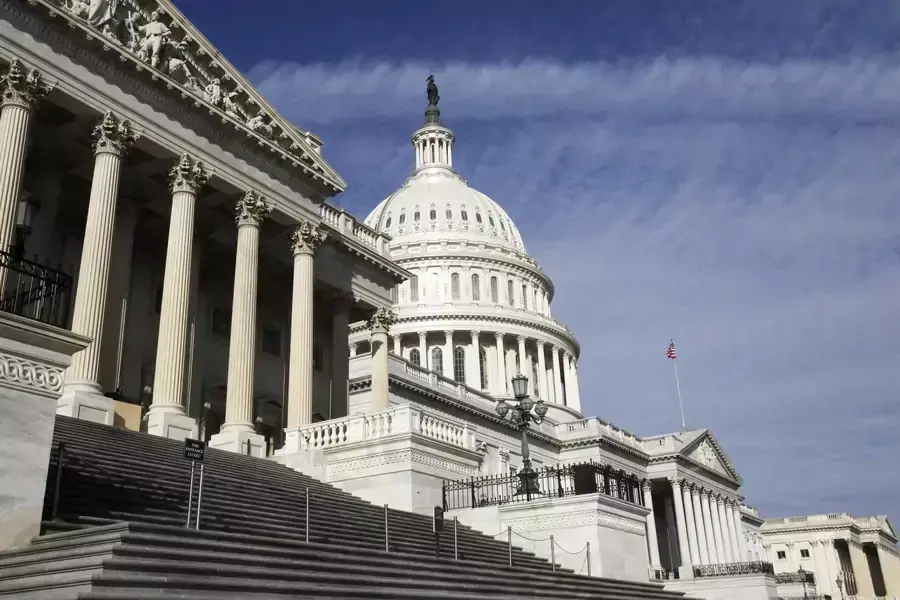Cyber Week in Review: June 29, 2018

Editor's note: There will be no week in review next week in observance of the July 4 holiday. It will be back on July 13.
Here is a quick round-up of this week’s technology headlines and related stories you may have missed:
More on:
1. Bills! Bills! Bills! Congress reviewed multiple cyber-related bills this week. First, the Senate passed the National Defense Authorization Act, which includes a provision that requires the executive branch develop a “plan, develop, and demonstrate response options to address the full range of potential cyber attacks.” Although the White House welcomes the provision, it objects to another that would require it to notify a country through which a cyberattack was routed to target U.S. interests. The White House argues that it would impede on the president's discretion with respect to foreign policy, limit options, and alert adversaries to U.S. targets of interest. Second, the Senate Foreign Relations Committee approved a bill that would that would re-establish the cyber coordinator position at the State Department, which former Secretary of State Rex Tillerson cut last year. It's unclear how the measure will be received by current Secretary of State Mike Pompeo. A similar version of the Senate bill passed the full House earlier this year. Finally, the House Foreign Affairs Committee approved a measure that would, among other things, require the executive branch to publish a list of known hacking groups targeting the United States.
2. Maybe we should re-evaluate this chest thumping. The recent United States-China trade dispute is leading Beijing to re-evaluate the country’s science and technology capabilities vis-à-vis the United States. The near collapse of ZTE, chiefly due to its reliance on U.S.-made technology, prompted many in China to argue that the recent effort to leapfrog advanced industrial economies like the United States through ‘Made in China 2025’ has caused the country to overlook its shortcomings. In a candid speech, Liu Yadaong, the editor-in-chief of China’s state-owned Science and Technology Daily, chided Chinese technologists that hype China’s achievements, saying they “fooled the leadership, the public and even themselves.” The gap between China and the U.S. still remains large, he said. Accompanying remarks in Liu’s paper called for “more self-reflection internally and more humility externally.” While Liu’s remarks might be genuine, they reflect a large shift in China’s propaganda apparatus, which has begun attempting by downplaying Made in China 2025 to assuage foreign alarm about the country’s industrial ambitions.
3. Don’t expect dollarydoos on the blockchain anytime soon. Australia's central bank doesn't see the need for national cyprotcurrencies for the moment, according to its head of payment policy. Issues of the scalability, governance, speed, and security are the main inhibitors. On the issue of scale and speed, at its peak, the bitcoin network could only clear 4.5 transactions a second, a paltry result when compared to the 65,000 transactions per second that Visa clears. The remarks add to the ongoing discussion in some quarters about the viability of national cryptocurrencies. The Russian government has mulled the possibility of creating a national cryptocurrency since at least 2015, and more recently proposed establishing a cryptocurrency for the countries in the Eurasian Economic Union and the BRICS. Senior Russian government officials have also argued that a national cryptocurrency could help it skirt Western sanctions.
4. Will Facebook unfriend Vietnam? Google and Facebook are considering their options after Vietnam recently passed a cybersecurity law that would severely affect their operations in the country. The law requires foreign internet companies store their data locally, open local offices, and if requested, give the government access to user data. The government claims the law is necessary to combat threats and the spread of disinformation, but critics see it as an effort to crack down on dissent. The law enters into force on January 1, 2019, giving Google and Facebook the rest of the year to decide whether it will comply or scale back its operations in the country.
More on:
 Online Store
Online Store